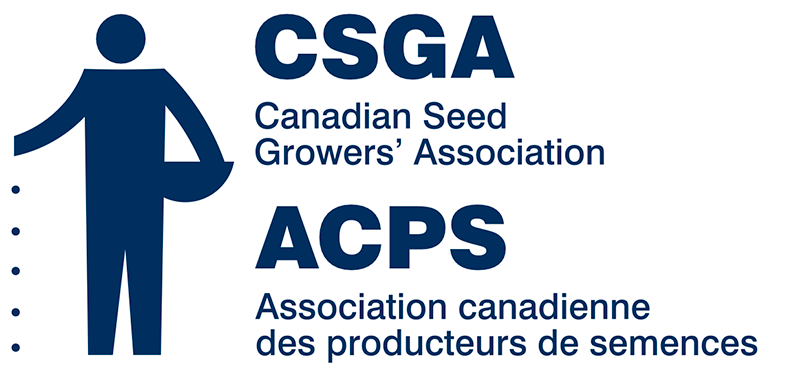Official Languages Policy
The Official Languages Policy defines the principles, policies and basic guidelines of the Canadian Seed Growers’ Association (hereby “CSGA”) as a bilingual organization in order to meet its obligations under the Official Languages Act and the needs of its clients and members in Canada’s official languages.
Section I – Principles
- The CSGA is a bilingual organization, operating in both official languages of Canada, French and English.
- The CSGA is committed to the principles of linguistic equality and strengthening Canada’s linguistic and cultural diversity.
- Consistent with these goals, members, clients and stakeholders of the CSGA will be able to communicate with and be served by CSGA staff in both official languages.
- All official CSGA documents will be available in English and in French, subject to operational considerations and the needs of clients, members, and the public.
Section II – Policy
- Overall Bilingualism Policy
- CSGA services will be provided in the language of choice of the directors, members, clients and stakeholders receiving those services.
- Workforce Composition
- The CSGA workforce will strive to possess the necessary collective proficiency to deliver the bilingual services to meet the needs of its members and clients.
- The Executive Director may assign language proficiency requirements to relevant staff positions based on business needs and other operational considerations.
- Subject to operational considerations, the bilingual staff complement will be maintained at the level necessary to ensure that the needs of members and clients are served effectively and in a timely way in both official languages.
- Language Training
- Where staff do not meet the requirements assigned by the Executive Director as per section II.2 above at the time of appointment to their position, they are responsible for acquiring the necessary skills within a reasonable time period.
- Subject to operational demands and other relevant considerations, the CSGA may provide language learning support to staff who do not meet the language requirements of their position, if those requirements arise following staff members’ appointments and are consistent with the CSGA’s mandate and broader operational requirements.
Section III – Written Materials
- General Approach
- General information materials of the CSGA (including without limitation its constating documents, website, standards and procedures, policies, and communications to its members and the public) shall be published and distributed simultaneously in both official languages.
- Electronic and Direct Mail Correspondence
- Email and direct mail correspondence will be conducted in the language of the original request. If originating with the CSGA, communication will be initiated by the preferences indicated in the CSGA client database and/or other measures.
- External forms, documents and communications
- All external forms, documents and communications will be available in both official languages.
- Website(s)
- The CSGA website, members’ website, SeedCert, and Seed Locator websites will all be available in both official languages.
- Advertisements, Promotional Material and Signage
- A bilingual format is to be used whenever required.
- Advertisements, brochures, pamphlets and all promotional material for general distribution will be made available in both official languages whenever required.
- CSGA signage and corporate identity will be available and viewable for both official languages whenever required.
Section IV – Oral Communication
- Phone Calls
- Telephone calls will be conducted in the language of the original request, as users may use the CSGA bilingual identification service through our general access line. Employees may also choose to transfer the call to a colleague who is more comfortable in the caller’s chosen language.
- Pre-recorded telephone messages
- All voice mail messages will be recorded in both official languages.
Section V – Organizational Procedures
- Conferences, Annual General Meetings and Other Meetings
- Annual general meetings, special general meetings and other meetings, conferences and events where both English and French are spoken will be chaired bilingually, and presenters will be made aware of the language requirements of participants, e.g. by providing attendants with headsets for translation from either language.
- Efforts will be made to ensure that participants feel free to use the official language of their choice at meetings, conferences or other events where both English and French are spoken.
- Board of Directors and Committees
- Participants in meetings of the Board of Directors and Committees are free to express themselves in the official language of their choice. The Board or committees of the Board shall be made available in English and French and interpretation shall be provided at those meetings where participants require it.
- All resolutions and meeting documents prepared for consideration at a meeting of the Board or committees of the Board shall be made available in English and French and interpretation shall be provided at those meetings where participants require it.
Section VI – Resolving Cases of Ambiguity
- English and French Publications
- The English and French versions of any documents published in both languages are equally authoritative and, in the case of ambiguity, will be interpreted in the same way that the courts would interpret bilingual statutes in Canada.







